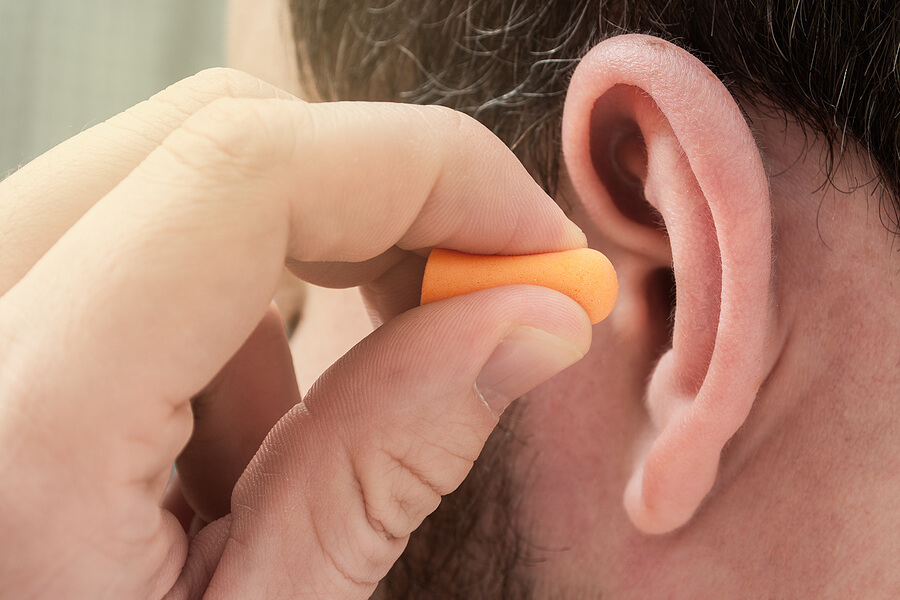Hearing loss and diabetes are two seemingly unrelated health issues, but recent research has revealed a surprising connection between the two. Let’s explore the link between hearing loss and diabetes and see how these concerns can impact each other.
Understanding Hearing Loss
Before we dive into the link with diabetes, it’s essential to know the basics of hearing loss. Hearing loss can affect anyone, at any age, and for various reasons. It is often categorized into two primary types: conductive and sensorineural hearing loss.
Conductive Hearing Loss: This type of hearing loss typically results from problems with the ear canal, eardrum, or middle ear. It can be caused by factors like earwax blockage, ear infections, or structural issues in the ear.
Sensorineural Hearing Loss: Sensorineural hearing loss is the most common type and is often age-related. It occurs when there is damage to the delicate hair cells in the inner ear or issues with the auditory nerve. Sensorineural hearing loss is often permanent and can be caused by factors such as exposure to loud noise, genetics, and medical conditions.
Exploring the Diabetes Connection
Now, let’s explore the unexpected connection between hearing loss and diabetes. Recent studies show that people with diabetes are more likely to experience hearing problems compared to those without the condition. While the exact mechanisms behind this link are not yet fully understood, several factors contribute to the relationship:
- Blood Sugar Levels: High blood sugar levels, a hallmark of diabetes, can damage the blood vessels and nerves throughout the body, including those in the inner ear. This damage can lead to hearing impairment.
- Inflammation: Diabetes often involves chronic inflammation, which can harm the delicate hair cells in the inner ear and affect hearing.
- Blood Flow: Impaired blood flow in individuals with diabetes can impact the circulation of essential nutrients to the ear’s delicate structures, potentially leading to hearing loss.
- Ototoxic Medications: Some medications used to manage diabetes may have ototoxic (harmful to the ear) side effects, contributing to hearing problems.
- Shared Risk Factors: Both diabetes and hearing loss share risk factors such as age, obesity, and cardiovascular problems, making it more likely for these conditions to co-occur.
Reducing the Risk
The connection between diabetes and hearing loss underscores the importance of diabetes management and regular hearing checkups. Here are some strategies to reduce the risk of hearing loss if you have diabetes:
- Control Blood Sugar: Keeping your blood sugar levels within a healthy range is important. Proper diabetes management can help protect your hearing health.
- Regular Hearing Checkups: If you have diabetes, it’s essential to schedule regular hearing checkups with a hearing health specialist. Early detection and intervention can help address hearing issues promptly.
- Lifestyle Factors: Maintain a healthy lifestyle by eating a balanced diet, staying physically active, and managing stress. These factors can contribute to overall well-being, including your hearing.
- Protect Your Ears: Avoid exposure to loud noises and use hearing protection when necessary. High noise levels can exacerbate hearing loss in individuals with diabetes.
- Medication Awareness: If you take medications to manage diabetes, be aware of potential side effects, including those that may impact your hearing. Discuss any concerns with your healthcare provider.
Hearing Loss Impact on Diabetes Management
Hearing loss can have a significant impact on individuals with diabetes. Communication is a crucial part of diabetes management, and hearing difficulties can make it challenging to understand healthcare instructions, communicate effectively with healthcare providers, and manage medication regimens.
Moreover, untreated hearing loss can lead to social isolation and reduced overall quality of life. It can be especially isolating for individuals with diabetes, as they may already face various health challenges.
A Comprehensive Approach to Healthcare
The surprising connection between hearing loss and diabetes highlights the importance of a comprehensive approach to healthcare. People with diabetes need to be proactive about their hearing health and integrate hearing checkups into their diabetes management routine.
By addressing both conditions, individuals can enjoy an improved quality of life and better overall health. If you have hearing loss, book your next hearing test. We’ll help you understand more about your hearing loss and explore your treatment options.

